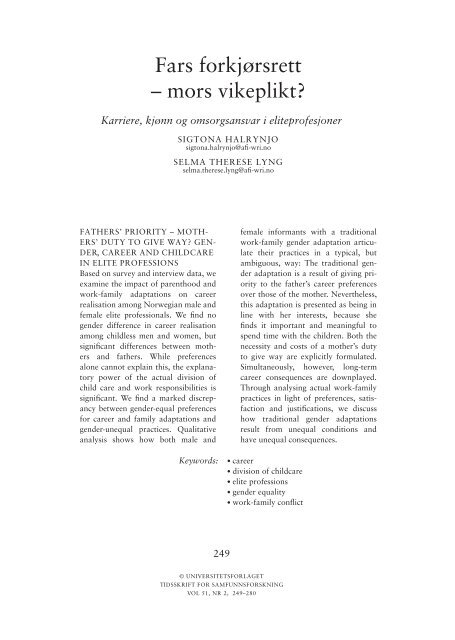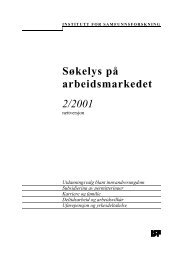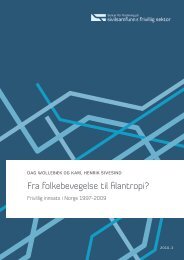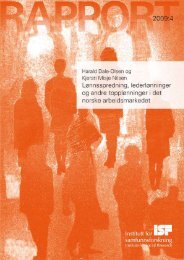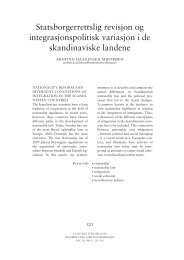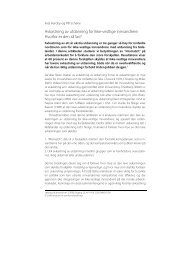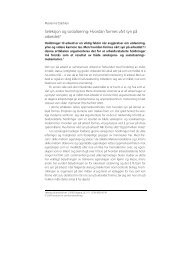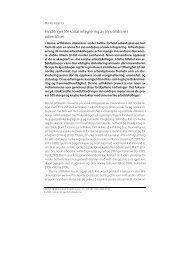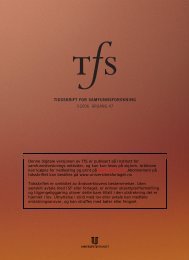+ Last ned pdf - Institutt for samfunnsforskning
+ Last ned pdf - Institutt for samfunnsforskning
+ Last ned pdf - Institutt for samfunnsforskning
Create successful ePaper yourself
Turn your PDF publications into a flip-book with our unique Google optimized e-Paper software.
Fars <strong>for</strong>kjørsrett<br />
– mors vikeplikt?<br />
Karriere, kjønn og omsorgsansvar i eliteprofesjoner<br />
SIGTONA HALRYNJO<br />
sigtona.halrynjo@afi-wri.no<br />
SELMA THERESE LYNG<br />
selma.therese.lyng@afi-wri.no<br />
FATHERS’ PRIORITY – MOTH-<br />
ERS’ DUTY TO GIVE WAY? GEN-<br />
DER, CAREER AND CHILDCARE<br />
IN ELITE PROFESSIONS<br />
Based on survey and interview data, we<br />
examine the impact of parenthood and<br />
work-family adaptations on career<br />
realisation among Norwegian male and<br />
female elite professionals. We find no<br />
gender difference in career realisation<br />
among childless men and women, but<br />
significant differences between mothers<br />
and fathers. While preferences<br />
alone cannot explain this, the explanatory<br />
power of the actual division of<br />
child care and work responsibilities is<br />
significant. We find a marked discrepancy<br />
between gender-equal preferences<br />
<strong>for</strong> career and family adaptations and<br />
gender-unequal practices. Qualitative<br />
analysis shows how both male and<br />
Keywords:<br />
female in<strong>for</strong>mants with a traditional<br />
work-family gender adaptation articulate<br />
their practices in a typical, but<br />
ambiguous, way: The traditional gender<br />
adaptation is a result of giving priority<br />
to the father’s career preferences<br />
over those of the mother. Nevertheless,<br />
this adaptation is presented as being in<br />
line with her interests, because she<br />
finds it important and meaningful to<br />
spend time with the children. Both the<br />
necessity and costs of a mother’s duty<br />
to give way are explicitly <strong>for</strong>mulated.<br />
Simultaneously, however, long-term<br />
career consequences are downplayed.<br />
Through analysing actual work-family<br />
practices in light of preferences, satisfaction<br />
and justifications, we discuss<br />
how traditional gender adaptations<br />
result from unequal conditions and<br />
have unequal consequences.<br />
• career<br />
• division of childcare<br />
• elite professions<br />
• gender equality<br />
• work-family conflict<br />
249<br />
© UNIVERSITETSFORLAGET<br />
TIDSSKRIFT FOR SAMFUNNSFORSKNING<br />
VOL 51, NR 2, 249–280


